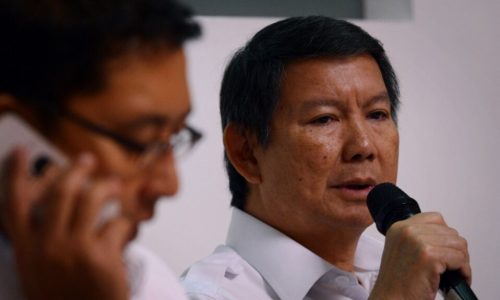An analysis on financial report of nine biggest coal mines in Indonesia by #BersihkanBankmu shows that banking credit for coal mining sector continues to increase despite talks on energy transition and net zero emission target.
#BersihkanBankmu is a civil society coalition that encourages national banks to have a concrete commitment to stop funding coal.
A team of analysts at #BersihkanBankmu says that the continuous funding for coal mines is risky for banking business in the future, as well as in contradiction with the vision of President Prabowo Subianto to terminate all coal-fired power plants in the next 15 years.
According to the analysts’ report, the are five banks that have issued huge loans for coal mining sectors − BRI, BNI,BCA, Mandiri and Permata banks − with a total value of US$5.42 billion and Rp5.37 trillion (US$338 million) in a period between 2016 to 2023. The report also reveals that PT Adaro Indonesia was the biggest credit recipient of US$1.94 billion and Rp 2.5 trillion (US$157.5 million).
This fact is in contradiction with media analysis conducted by CERAH on the media report on bank in the last one year. In many media reports, Indonesian banks continue to state that they have increased sustainable financing and are ready to support government’s effort to encourage energy transition and achieve net zero emission target by 2060.
Bhima Yudhistira, Executive Director of Center for Economic and Law Studies (Celios) said that the increasing domestic bank financing in coal sector will have impacts on banks’ health. He cited that by continuing to finance coal projects, banks are exacerbating the climate crisis in Indonesia, which in turn has the potential to cause the dirty assets financed to become stranded assets.
“If they continue to direct funding the dirty activities, the banks are funding their own internal crisis,” Bhima said as quoted in a statement on Tuesday, December 10, 2024.
He said further that the banks should be able to provide a limit on fossil energy financing. Moreover, he added, investment in renewable energy power plants has become increasingly competitive, with investment in solar power plants estimated at only US$410 per kilowatt (kW) compared to ultra supercritical power plants of US$1,430/kW in 2050.
“National banks should provide interest subsidies for community-scale renewable energy lending, such as the People’s Business Credit (KUR) scheme, and increase the portion of sustainable financing (sustainability link loans),” Bhima cited.
Green financing
Wicaksono Gitawan, CERAH’s Just Energy Transition Associate, said the increasing media reports on domestic banks’ higher green financing commitments must be accompanied by concrete measures to immediately stop financing the coal sector.
“Moreover, President Prabowo has expressed his desire to immediately stop the use of coal-fired power plants in 2040,” he said.
According to Wicaksono, banks should be able to see President Prabowo’s statement as a long-term risk that must be considered if they continue to finance coal mines and coal-fired power plants.
Strengtening green taxonomy
The coalition suggests that besides the banking sector, the Financial Services Authority (OJK) as regulator also has an important role in encouraging energy transition in Indonesia. However, taxonomy document on Indonesian sustainability (TKBI) issued by OJK has not been aggressive enough in encouraging green financing by banks because the existing document abolishes the red classification stipulated in the previous document.
Linda Rosalina, Executive Director of TuK Indonesia, said that TKBI issued by OJK should be stronger in defining whatever activities that can be categorized as green.
“The disappearance of red classification in Green Indonesia Taxonomy in TKBI and the green activities and the energy transition hinted are not the case in reality. Moreover, green classification only refers to certifications, such as Indonesian Sustainable Palm Oil (ISPO) and Roundtable Palm Oil (RSPO) in the case of palm oil,” Linda said.
“Indonesia must start improving its banking sector if it does not want to be left behind by other countries in the region. The dream of driving the energy transition must be reinforced with improved policies and supporting infrastructure. If it doesn’t start now, Indonesia will be the last,” she concluded.









